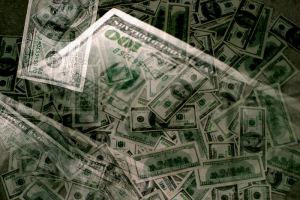Why Recessions Are Sometimes Necessary
When the economy begins to slow down, it’s a natural instinct for policymakers to take steps to intervene and try and prevent a recession.
But recessions can also serve a useful purpose, requiring businesses to adapt to changing conditions and become more competitive, said Polina Vlasenko, senior research fellow at the American Institute for Economic Research. Taking steps to avoid those recessions can sometimes do more harm than good, effectively pressing the snooze bar and leading to a more painful adjustment later on, Vlasenkso said on Wednesday.
Vlasensko is the author of a new research paper, “The Changing Nature of Recessions,” which demonstrates how recessions don’t happen as often as they used to, but over the last 30 years have been a lot more damaging than in the years that preceded them. There are several factors that have caused a fewer number of recessions, and some of them are merely a sign of the times, she said. For instance, a workforce that has shifted away from manufacturing has led to an economy that is much less vulnerable to drops in demand for consumer goods, she said.
But recessions have also been made more rare because there has been an increasing expectation from voters that lawmakers and the Federal Reserve take steps to prevent an economic slowdown, she said. This can be helpful in a simple recession, one based on fleeting factors, like a drop in demand for U.S. exports, she said. But when a downturn is caused by structural change in the economy, like the housing or dot-com bust, sometimes it can be better to let the adjustment happen and help the workforce adapt to the new reality, she said.
“Your goal shouldn’t be eliminating recessions. You goal should be helping people get through them with less damage,” such as with job retraining programs to guide displaced workers toward growing parts of the economy, she said.
It’s easier for companies to be successful in a good economy, she said. But in a recession, companies are forced to think hard about how to change what they’re doing, she said. A recession can promote efficiency in the economy overall, “by killing off the inefficient elements,” she said. A company that can’t survive in a tough economic environment is probably not very efficient, she said. When times get tough, companies that are better organized, with better supply chains, tend to survive, she said.
But if policymakers try to eliminate a recession, those improvements don’t happen as often, she said. With fewer recessions, mismatches in the economy have more time to grow, and when the correction finally does happen, it tends to be much more severe, she said.
“It’s almost human nature, you don’t do the really hard job until you have to. Companies are run by humans,” Vlasenko said.
Managers who have seen recessions before tend to gain the skills needed for weathering the next one, she said. With recessions more infrequent, when one actually does happen, it tends to catch managers off guard, especially those who have never navigated through one before, she said.









